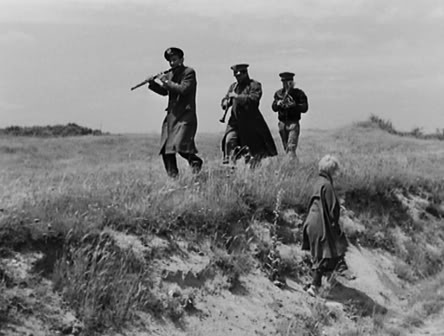13 october 2007
what, in our house?
They hate the actual world. The actual world is a kind of tedious plane where dwells, and goes to school, the body, the boring body which houses the eyes to read the books, and houses the heart the books enflame. The very boring body seems to require an inordinately big, very boring world to keep it up, a world where you have to spend far too much time, have to do time like a prisoner, always looking for a chance to slip away, to escape back home to books, or escape back home to any concentration - fanciful, mental, or physical - where you can lose your self at last.
- Annie Dillard, An American Childhood
19 october 2007
There is a place between an owl
and a tall crowd of equal lines,
a wood of wishbone trees.
Half air, half village,
it murmurs, like the mind upon the brain
and people with carrier bags
walking symmetrically between their hands,
they live like that in a poise of pressures.
The neighbours regard each oddity until it goes . . .
*
At eight o'clock, I opened the window to the woods
and an owl about the size of a vicar
tumbled across in a boned gown
and then a fleet of owls, throwing the hoot between them,
owls with two faces singing Ave and Ouch Ave and Ouch . . .
*
and you and I - comprehension burst its container
twice, in that the ear
extends through us beyond the ear -
we grew aware of the villagers
in bird clothes afloat among the trees
singing Libera me Domine Deo
and the disseverence of ourselves,
as if we stood, one dead, the other alone.
- Alice Oswald
22 october 2007
Across the lawn a long parade of girls
With buttoned gloves convey unpassing time
And underneath the beech a wide skirt swirls:
Far out, like rhyme.
Dressed as a major in some abstruse corps
With Sam Browne belt, and crowns upon my sleeves
I slap my bulging cords, not worn before.
No one believes
My kind of officer. No pips or gun,
Or any polish on his riding-boots,
And my sword-frog and flask are worn for fun.
If someone shoots,
His make-believe loud shell will make a bang
And faze the ladies, twirling parasols.
Not one of us could march a parasang
Or fill with holes
A can of beer set up upon a cart
At fifty yards. I stroll, and would salute,
Though rather warily, what might impart
A distant hoot
Of laughter, a real military man,
This proper major, eighty-six years old,
Stiff on his stick, with keen eyes and a tan,
Whose fire's grown cold.
Medals come easy, like this DSO
Whose colours nip my undeserving chest.
But his were his. Yes, that was long ago,
And that seems best.
But still, inside my head, becapped and grey
With middle age, I think a fine salute
And make it stick. We play a game today
But it takes root.
And in my mind, remembering that war
My father died in, and the one that's done,
Or may be done, this game is played with awe.
And what's begun
In quirky humour, ends as reverence.
The women furl their things. it starts to rain,
And the Edwardian age, bought for some pence,
And a frill train,
Is drawn indoors. There sepia photographs
Of Wilfred Owen, and of Hemingway,
Who wears his helmet proudly, but still laughs,
Preserve our play
And set it in a frame. I turn and pour
Another glass of port for someone new
In ordinary clothes, who likes my floor
And wants the loo.
Outdoors in the garage, a frail red cross
Indicates where our dressing-station lay.
My old wound stirs, that massive sense of loss.
It comes to prey
On all I have. Whenever I'm alone
It grips with claws at what I cannot be,
One of those dead who gave past war its tone
And made me, me.
I watch the tears of water on the pane
Outside the library. I hear the birds
Chatter in fear, as I twist round my cane.
Words are just words
And these, though mine, change nothing. All this year
The seasons have prolonged forgotten growth
And flowers budded, and my death grown near,
And we are both,
Lisa and I, set forward in a way
That may preserve the best, and, should we die,
Still honour all the braids of yesterday
And hold them high.
This feels a duty. To receive our boons
And rinse them, torn like colours from the past,
And, as with these forced rituals, mark some runes
And nail them fast.
- George Macbeth

